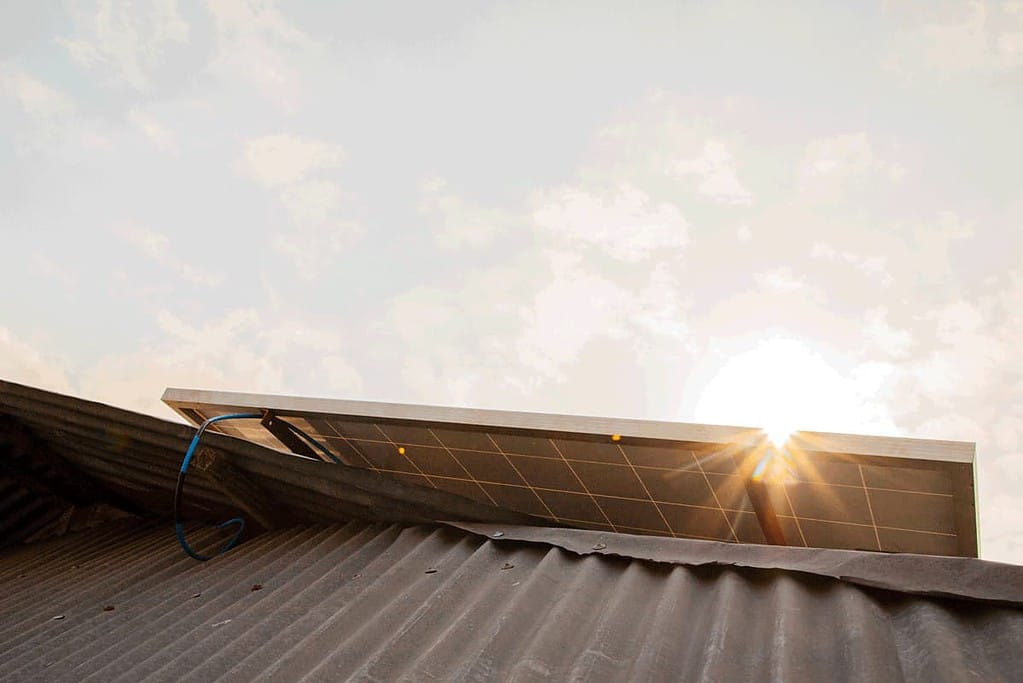Optimism and Urgency at the 2022 Global Off-Grid Solar Forum & Expo

- Blog
- Energy
When Acumen was in Kigali, we shared what we have learned from 15 years of investing to end energy poverty and built on the partnerships and connections needed for us to further our reach and impact. Conference sessions and connections made during the GOGLA Forum left us with many insightful takeaways that we will be putting to use in our strategy.
- Energy for rural livelihoods has become a major priority for the off-grid solar sector. Some promising innovations of productive uses of off-grid energy were showcased such as Koolboks, but it’s clear more proof points are needed. As funders pin their hopes on the potential of models that promise to decarbonize rural livelihoods while also boosting incomes and resilience, there is a need for focus and patience. The vast majority of businesses offering solar irrigation, cooling, agricultural processing, drying, electric cooking, mobility, and even sewing are still very nascent. These companies need early-stage and patient capital to refine their models and understand how to meet their customer’s needs.
- Focusing on customer needs is key to managing risks in off-grid businesses. Multiple sessions highlighted the importance of starting with the customer for business success – instilling strong consumer protections, accessible and robust after-sales service, and honing product suites to ensure product-market fit. Dan Waldron, Acumen’s Head of Insights, led a session that reinforced the urgent and crucial need for companies and investors to embrace consumer protection in the off-grid solar sector. “We need to expand access to credit, it’s what drives resilience and adaptation. But expanding access to credit for people who are already vulnerable must come with care because once you have them in, it can either help build or destroy that history and track record,” he explained.
- Despite huge growth in the industry, 1.1 billion people still need to be electrified to reach SDG7 – universal energy access – highlighting a massive investment gap at the last mile and within underserved markets in sub-Saharan Africa. If we want to reach the hundreds of millions of customers in untapped markets, we need to invest more in the smaller, locally-owned companies that understand and are ready to scale in these markets. Last mile distributors have been woefully underfunded and continue to struggle with working capital constraints, but are central to our ability to leave no one behind. Unlocking innovative financing for those smaller and local companies in nascent markets will supercharge efforts to achieve SDG7. A number of software companies such as Solaris, are able to support these local distributors to build scalable models that reach the last mile across any country.
- Climate finance represents a huge opportunity for the off-grid solar sector which, if leveraged appropriately, could be game-changing for the industry. Amar Inamdar, Executive Director of KawiSafi Ventures, led a session about climate finance, its potential to scale the sector and what is needed to attract this capital. While Jiwoo Choi, Acumen’s Chief of Strategic Initiatives, explained why she remains optimistic about the opportunities around climate finance in energy access. The $2 billion carbon credit market is an opportunity that has transformed the clean cooking sector and could also transform other sub-sectors across the industry. New technologies are being developed with players such as Carbon Clear and the D.REC Initiative that are disrupting the traditional way of selling carbon credits and making it more cost-effective and accessible for off-grid solar companies to do so.
The off-grid solar sector has made huge progress over the past decade, providing first-time electricity to 490 million people and showing resilience amidst the global disruptions created by COVID-19. However, a lot still needs to be done if we want to achieve SDG7 by 2030. Companies, investors, and donors will need to increase their risk-taking and prioritize partnerships and a collaborative approach to tackling this complex challenge. For Acumen, people living in poverty are at the center of our work, and this forum reinforced the need for both deepening our impact on the lives of vulnerable communities by investing early-stage capital in the Productive Use of Energy ecosystem and shifting investment capital to more complex markets in sub-Saharan Africa that other investors deem too risky. But we can’t do it alone. Only through partnerships will we be able to transform the lives of the most vulnerable